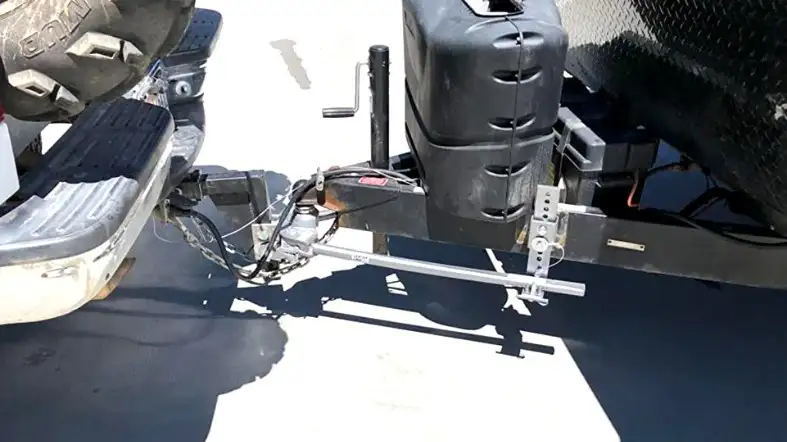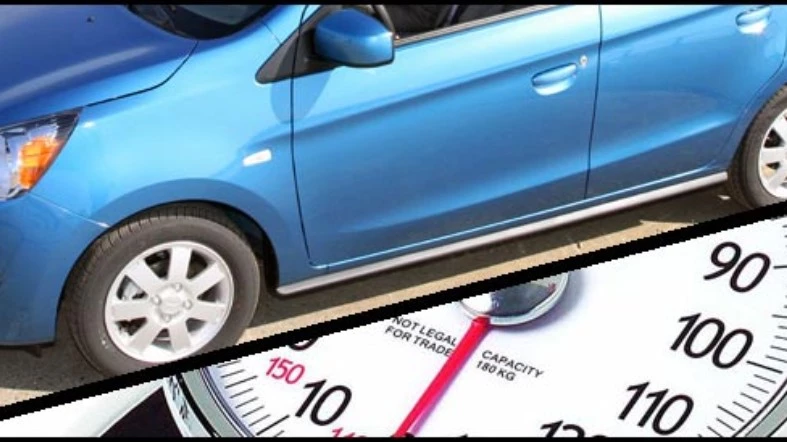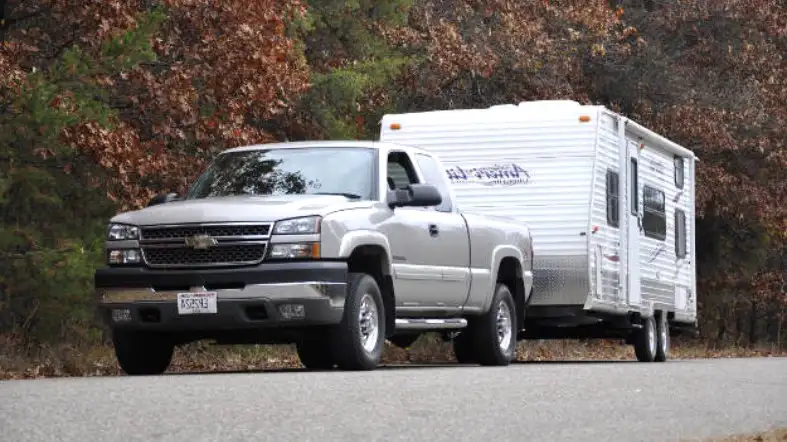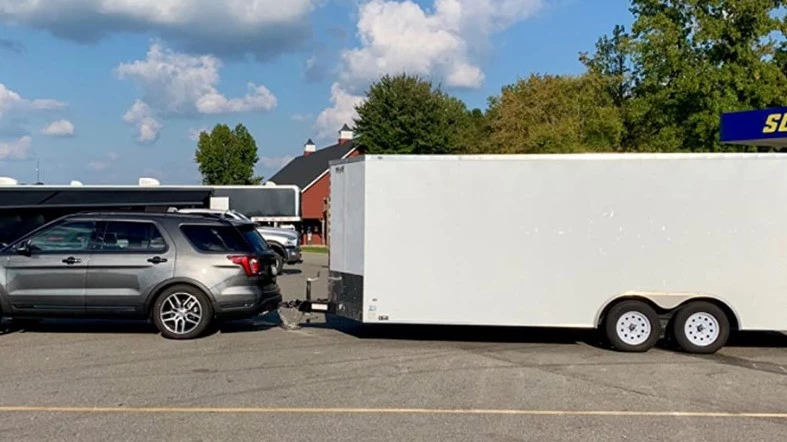No prizes for guessing that the effectiveness of a weight distribution hitch is usually compromised if the WDH is too light for the task at hand.
In the same way, a too-powerful WDH will leave you with a rough trip and an unstable trailer.
There comes the question “what size weight distribution hitch do I need?”.
In practicality, a weight distribution hitch specifically optimized for the tongue weight of your trailer will provide the smoothest ride.
So, this article will help you choose that properly-sized and specifically optimized WDH for your trailer.
What size weight distribution hitch do I need?
The size weight distribution hitch you need depends on the total weight of your trailer and the tongue weight of your trailer (the weight of the trailer pushing down on the hitch).

You should consult the manufacturer’s guidelines or consult with a professional to determine the appropriate size hitch for your specific trailer and vehicle.
Determine the right size weight distribution hitch:
To determine the size of the weight distribution hitch, we have to decide on 2 factors in the first place.
Then, combining the three at the same time depicts the ideal weight rating for a weight distribution hitch.
Determine the gross trailer weight (GTW):
When pulling a trailer, it is essential to be aware of the Gross Trailer Weight (GTW). It may be easily calculated.
The gross trailer weight is the total weight of the trailer along with the load you have put on it.
In other words, GTW is the gross weight of the trailer with all the loads on it.
So, it includes both the actual weight of an empty trailer and the cargo or total load you put onto the trailer.
To simplify, you have to take into account everything from good to passenger and everything incidental to them, such as animals, fluids, and other sorts of necessary equipment.
The Dry/Curb Weight:

Most trailers do have a sticker clearly displaying its dry or curb weight (unloaded).
However, if yours don’t have one, you’ll have to do your own weighing.
Simply pulling a trailer upon a public scale gives the curb/dry weight of the trailer.
It is also possible to measure the GTW in this way.
To get an accurate weight of the trailer without the tow vehicle, you’ll need to remove it from the hitch.
The vehicle has to be off the scale completely. While the whole trailer, all the wheels, and the tongue have to be on the scale.
Measure the GTW:
You can also choose to measure the GTW at once. Instead of measuring the dry weight and then GTW, put the loaded trailer on the scale.
This will give you the GTW and thus the tongue weight.
Or, if you have the dry, you can estimate how much stuff you’re loading onto it.
Example:
If the dry trailer weighs 5000 pounds and you put cargo measuring 4000 pounds.
Then the GTW stands at 900 pounds.
Determine the total tongue weight:

Moving on, once you have determined your GTW, it is time to determine the tongue weight.
Simply put, the tongue weight is the load, exerted by a loaded trailer, that the hitch ball has to bear.
In practicality, it also includes any sort of extra load that you put on the rear axle of the towing vehicle.
So, measure the weight when you have fully loaded the trailer.
To ease your efforts, you can simply figure out the total tongue weight from the GTW. Pure and simple!
Calculation:
The tongue weight is no more than 10 to 15 percent of your GTW.
According to experts, trailer swaying and a drop in your vehicle’s towing capacity can result from a grade outside of the recommended 10-15% range.
Example:
If the trailer you have has a dry weight of 5000 pounds and you load cargo measuring 5000 pounds.
So, the GTW is now 10,000 pounds. You know what is 10-15% of 10,000 pounds, don’t you?
Well, the tongue weight then will be 1000 (10%) to 1500 (15%).
Figure out the WDH size:

As we have clarified, the weight distribution hitch you use has to have a rating that is equal to or higher than the Gross Trailer Weight.
The same rule also applies to tongue weight.
Do a final calculation:
Let’s say, for instance, you have a trailer that weighs 4,000 pounds (dry), and the cargo weight is 3,000 pounds.
So, in the gross trailer weight, it stands at 7,000 pounds.
So, the tongue weight rating for the same trailer is 700 (10%) to 1050 (15%) pounds.
Let’s say, you set it on 750 pounds for safety.
Now, if we apply the industry-approved thumb rule, we get the followings.
You have to have a weight distribution hitch that has a gross trailer weight rating of at least 7000 pounds, whereas the tongue weight rating has to be 750 pounds, at least.
However, as experts suggest, a rating capacity higher than the general requirement is on the safer side.
So, going by this line, you should have a weight distribution hitch with a gross trailer weight of 8000 pounds.
On the other hand, 800 pounds rating for the tongue weight would suffice.
Expert tips:
We have been taught to follow a middle path since our childhood, haven’t we?
It seems that the middle path rule is the rule for a WDH.
To get the most out of your WDH, experts suggest keeping the tongue rating at the midpoint of the WDH rating.
In case your tongue weight shifts between travels, you’ll have a little wiggle room.
If you measure a tongue weight of around 700 pounds, the WDH shall have a tongue weight rating of 500-900 pounds.
FAQs about the size of the weight distribution hitch:
What Size Trailer Needs A Weight Distribution Hitch?
Towing anything weighing more than 5,000 pounds necessitates a weight distribution hitch.
So, a WDH is a standard piece of equipment on most half-ton and midsize pickups.
What Does My Trailer Sway Even After Using A Weight Distribution Hitch?
Because you don’t have the right size weight distribution hitch.
For instance, if the tongue weight is beyond the rating of the WDH, the hitch won’t be able to level the vehicle.
So, it will sway as if there is no WDH attached.
Can I Tow More Weight With A Big Weight Distribution Hitch?
An oversized weight distribution hitch is bad in essence, moreover, it doesn’t extend the carrying capacity.
In short, it has nothing to do with carrying more weight.
Rather, what a WDH hitch does is to allow the receiver hitch to carry maximum weight without being unstable, aka remain level.
Does A Weight Distribution Hitch Reduce Tongue Weight?
Irrespective of the size of the hitch, a weight distribution hitch has nothing to do with reducing the tongue weight.
A receiver hitch has tongue weight in the first place. Based on this tongue weight we merely choose a WDH.
It neither reduces the tongue weight nor lets the vehicle carry more than its capacity.
Do I Really Need A Weight Distribution Hitch?
If you tow something that weighs more than half of the weight of your car, you will require a weight distribution hitch.
That’s a pure and simple safety measure!
Final Words
One often gets it wrong when it comes to deciding the “what size weight distribution hitch do I need”.
But, following the foregoing discussion, it’s now a piece of cake, isn’t it?
If you get the gross trailer weight correct, you are all set to pick the right size weight distribution hitch.
However, to sum it all up, we suggest consulting the trailer and hitch manual at the same time to be sure if there is any specific requirement pertaining to the size of the WDH.
